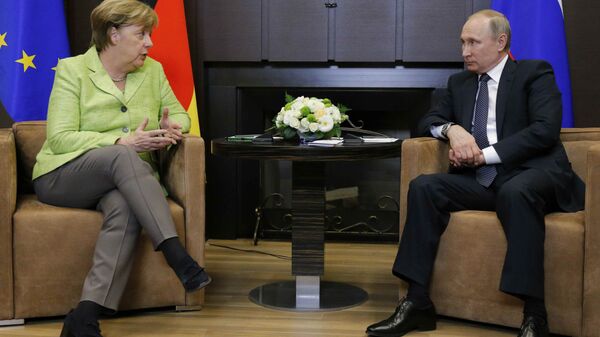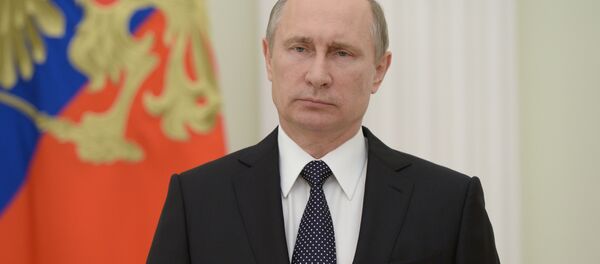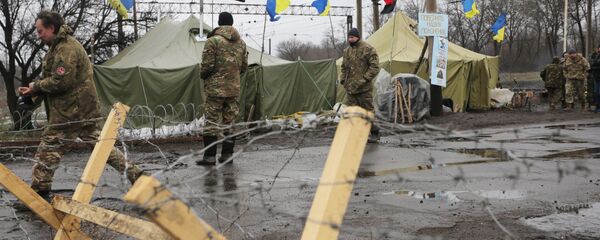During their joint press conference following Tuesday's talks, Russian President Vladimir Putin confirmed that "the situation in Ukraine remains a source of serious concern" for both countries, adding that he and German Chancellor Angela Merkel had agreed on "the need for the implementation of the Minsk agreements by all sides."
Still, the two leaders also struck a note of discord on one important detail. Putin indicated that while the Normandy Four dialogue format (which includes Ukraine, Russia, Germany and France) is satisfactory, the conflicting parties (i.e. Kiev and the Donbass breakaways) should also be able to pursue direct dialogue. Merkel, for her part, was adamant in her opposition to "inventing anything" that is separate from the Normandy format and the Minsk peace accords.
During the joint press conference, Putin made clear that Kiev bore primary responsibility for separating Donbass from Ukraine, including through its failure to implement Minsk, and its recent decision to impose a blockade against the territory.
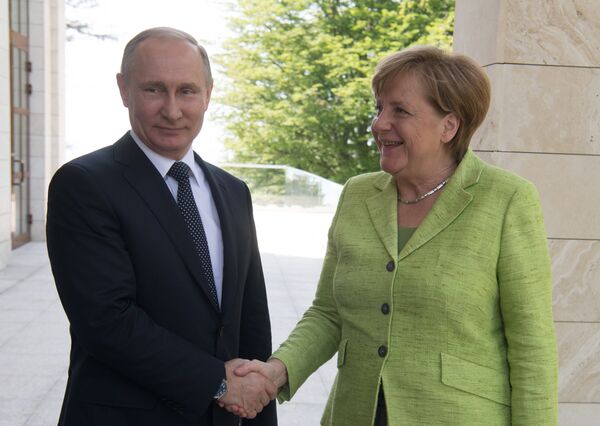
Speaking to Russia's Svobodnaya Pressa online newspaper, Vadim Trukhachev, an international politics expert and lecturer at the Russian State University for the Humanities, explained why the Ukraine issue will be likely to remain a bone of contention in Russian-German relations for a long time to come.
"Ukraine," the expert recalled, "is a territory which Berlin has had a special interest in for a long time. Germany wants to include the country into its own sphere of influence, and in this sense nothing has changed. It's worth noting here that the Germans have their own foreign policy line, sometimes different from that of the US – they are playing their own game."
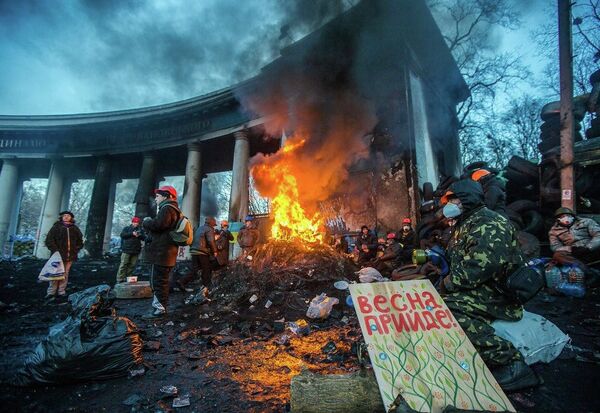
"Obviously, it's not necessary to imagine how Russia views this German 'special interest' toward Ukraine," Trukhachev stressed. "The Ukraine issue had spoiled Russian-German relations in the past, and will continue to do so. This is one of the most important issues in relations between the two countries, and this will continue to be the case at least until the end of the war [in the Donbass]…"
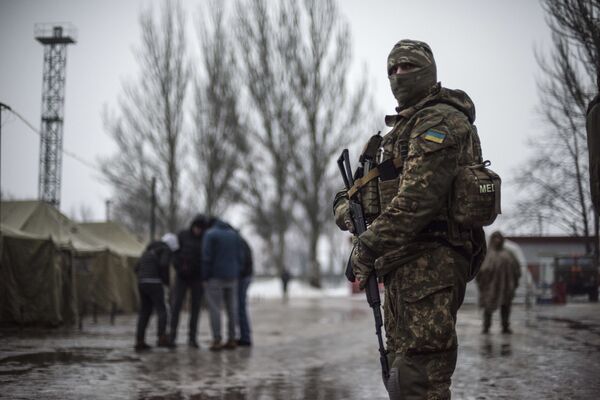
The analyst added that while Merkel's visit was a sign of progress, particularly given her symbolic decision to come to Russia after spending two years refusing to do so, when it comes to the Ukrainian issue, no progress is visible.
"In fact, until the German elections [in September], and even until the Russian presidential election in March 2018, it's not worth expecting progress, absent a situation where the chaos in Ukraine acquires a level so large that Merkel will have to turn off her anti-Russian broken record."
As for Merkel's firm refusal to consider new formats for negotiations on peace in eastern Ukraine, Trukhachev indicated that this was strictly a political move. "Politicians do not like to admit mistakes, and Merkel is no exception. She cannot admit aloud that the Minsk agreements aren't working. It's possible, perhaps, that she also understands how difficult it would be reach any kind of deal, because the situation in Ukraine itself is too unpredictable, and any new document could be turned into a worthless piece of paper. It's unlikely that the German side believes in the effectiveness of the current Minsk format, but the present situation does not allow Berlin to directly admit its failure."
Moscow has repeatedly accused Kiev of deliberately refusing to make progress on the implementation of the Minsk agreements' thirteen point plan, specifically its points requiring Ukraine to make changes to its constitution granting the Donbass breakaways special status.
"Right now, the average German burgher doesn't really feel the Ukrainian issue affecting his wallet. But if the EU-Ukraine visa-free agreement causes any big problems, like through an increase in weapons smuggling or a growth in crime, Ukraine will turn into a major issue in domestic German political debates, and not only in the context of Germany's [geopolitical] interests in the east," the observer concluded.
*Drang nach Osten, literally 'yearning for the East' or 'drive toward the East', is a term coined in the 19th century to describe plans for German expansion into Slavic lands.
